news
Breaking : At last, FG and Labour agree on ₦70,000 as minimum wage
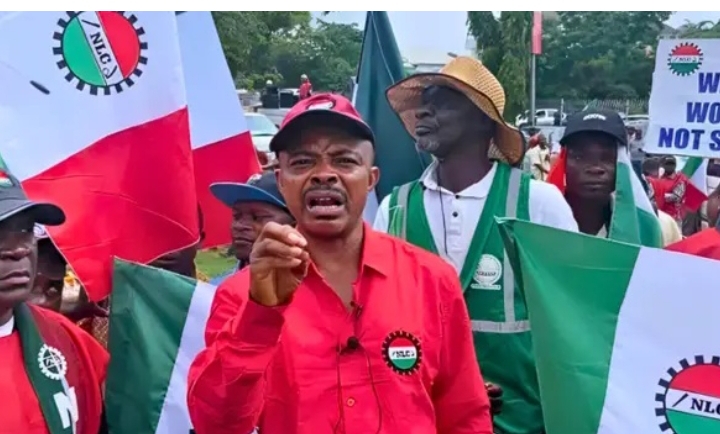
 In a landmark development, the Federal Government and Organised Labour have agreed on a new national minimum wage of N70,000, a significant increase from the current N30,000.
In a landmark development, the Federal Government and Organised Labour have agreed on a new national minimum wage of N70,000, a significant increase from the current N30,000.
The newly agreed minimum wage was reached on Thursday when President Bola Ahmed Tinubu met with the leadership of the organized Labour, led by presidents of the Nigerian Labour Congress (NLC) and the Trade Union Congress (TUC) at the State House, Abuja, the second meeting within a week.
Before reaching the agreement, the two sides, being government and the organised private sector on one side, and the organised Labour on the other, had held a long-drawn series of negotiations, starting with the Constitution of the Bukar Goni-Aji-led Tripartite Committee on New National Minimum Wage.
While the negotiations were ongoing, the employers’ side (federal/sub-national governments/OPS) had offered varying amounts, starting with ₦48,000 to ₦54,000 to ₦57,000 to ₦60,000 to ₦62,000 and finally to the agreed ₦70,000.
On the side of Labour, the leadership of the workers started negotiation with a demand for ₦615,000 then lowered it further to ₦500,000 to ₦497,000 to ₦250,000 and finally agreed to ₦70,000.
However, disclosing details of the meeting and the final agreement to journalists at the State House, Abuja, the Minister of Information and National Orientation, Mohammed Idris, described the conclusion of the meeting as “a happy day for Nigeria”.
Read Also: NLC urges FG to pay SSANU, NASU withheld four-month salaries
According to Idris, besides the agreement to the ₦70,000 minimum wage, the government has also agreed to addressing the disagreement over the withheld salaries of university workers’ unions; the Senior Staff Association of Nigerian Universities (SSANU) and the Non-Academic Staff Union of Universities (NASU).
The government has also pledged massive investments in infrastructure and renewable energy, including the acquisition of more CNG buses to enhance Nigeria’s transition to cleaner energy, as well as expressing commitment to ensuring local government autonomy.
“Today’s a happy day for Nigeria. You’ll recall that last week we had a meeting here and the organized private sector. The sub-nationals have also held their various meetings with Mr. President following the submission of the tripartite agreement to Mr. President. Labour came last week, they had meetings with Mr. President, they asked for adjournment for a week to go and consult further. They did those consultations, they have come back today and we have met with Mr. President.
“We’re happy to announce today that both the federal government and organized Labour have agreed on an increase on the N62,000 minimum wage. The new national minimum wage that we expect Mr President to submit to the National Assembly for legislation is N70,000. But that is not all. There is also a boost, like Mr. President has assured, in ensuring that massive investment is going to be made in the area of infrastructure.
“There is also a deepening of the investment of the federal government in renewable energy. More money is going to go into the acquisition of more CNG buses, Nigeria is going to be more CNG compliant, according to the President. We’re moving in this transition to renewable and all other things that Mr. President has assured Labour; the issue of SSANU and NASU is also going to be looked at.
“We are happy, we are very thankful of the role that the Organised Labour has done today. They recognised the federal government’s role in ensuring that we have the local government autonomy, in also ensuring that both the Organised Labour and the government are on the same page today. They have seen the magnanimity of the President and today the leadership of Labour said they didn’t come here for negotiation, not at all. They came here in their deep sense of patriotism to ensure that Nigeria remains united, Nigeria becomes more prosperous.
“It is in that spirit that they are in agreement with what the federal government has done today. We want to thank Labour for their patriotism. We also want to thank Mr President, the federal government, the sub-nationals and organized private sector for going through this painstaking effort, by also ensuring that at the end of the day Nigeria is the winner for it all”, Idris said.
Corroborating the Information Minister’s brief, the Minister of State for Labour and Employment, Nkeiruka Onyejeocha, announced that organized Labour has agreed to the new minimum wage of N70,000 after the meeting with President Tinubu.
The agreement comes after labour leaders requested a one-week extension to consult with their members, following their initial meeting with the President last week.
According to Onyejeocha, the President adopted a fatherly approach, emphasizing the need for a review of the minimum wage policy every three years, rather than the current five-year cycle.
She further hinted that the President also directed the Minister of Finance and Coordinating Minister of the Economy, Wale Edun, and the Minister of Budget and Economic Planning, Abubakar Bagudu, to review the issue of SSANU and NASU payments, with a waiver to pay the outstanding amounts.
She also said the President reassured Nigerians of his commitment to the country’s economic recovery and the welfare of citizens.
President of the NLC, Joe Ajaero, said the Organised Labour agreed to the new national minimum wage of N70,000 because of the President’s willingness to review wages every three years, rather than the usual five-year cycle.
While acknowledging the economic situation, Ajaero expressed mixed feelings about the agreement but noted that the NLC will take the proposal back to their constituency for further discussion and buy-in.
The agreement marks a significant step forward in the ongoing negotiations between the government and labour leaders, with a promise of future reviews and incentives like the CNG scheme to alleviate the burden on Nigerian workers.
“Well, we’re here last week and we’re here now, what they have announced in terms of the amount of N70,000 happened to be where we are now for now, but the good thing about it is that we will not wait for another five years to come and review, rather than settling on a figure that we’ll wait for five years, it’s like we’ll have to now negotiate even two times within five years, with a view to going up. That is one of the reasons why we decided to reach where we are today, because of the proviso that we can review in the next three years.
“We came with other issues in the basket, like the issue of SSANU, NASU and others, especially with the affront by the Commissioner of Police of FCT, we brought it to Mr. President, and talked on the need for that matter to be addressed and magnanimously, he asked the agencies concerned to work out the modalities for the payment of those workers in the universities.
“So far, that’s where we are. Although he promised some incentives like the CNG, which will lessen the burden that the Nigerian workers are passing through, but you can see that we are taking in this with mixed feelings because of the situation of the economy, we will have to move ahead despite the situation and the negotiation can linger. Coming from 62 to 70 and then with the promise that we’ll come back soon to negotiate it.
“We’re taking it back to our constituency to see how we can get a buy-in. So that’s what has transpired this afternoon”, he said.
The TUC President, Festus Osifo, who also spoke to journalists, expressed satisfaction with President Tinubu’s intervention, especially with the proviso for review every three years.
He also commended the President’s promise to address the issues of SSANU and NASU, and emphasized the need for swift passage of the minimum wage bill by the National Assembly and urged that the student loan scheme be targeted at those who need it most, not just the children of the rich.
news
Update : TINUBU DEPARTS ABUJA FOR AQABA PROCESS MEETING IN ROME, SAYS ONANUGA
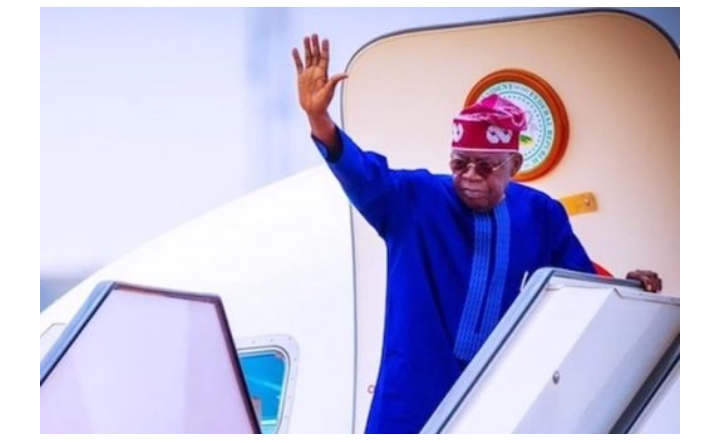
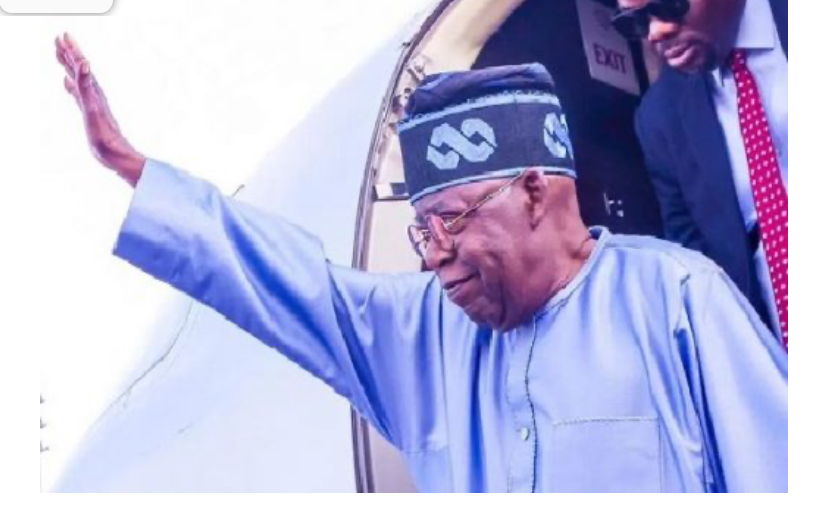
President Bola Tinubu will depart Abuja on Sunday, October 12, for Rome, the capital of Italy, to participate in the Aqaba Process Heads of State and Government Level Meeting, with special focus on the security crisis in West Africa.
The meeting, which will begin on October 14, will bring together Heads of State and Government, senior intelligence and military officials from African countries, and representatives of intergovernmental and non-governmental organisations to discuss the evolving security challenges in West Africa.
The Aqaba Process Meeting is a counter-terrorism initiative launched by King Abdullah II of Jordan in 2015. It is co–chaired by the Hashemite Kingdom of Jordan and the Italian Government.
It recognises the complex security challenges confronting West Africa, including the expansion of terrorist networks, the growing crime-terror nexus and the increasing overlap between land-based terrorism in the Sahel and the maritime piracy in the Gulf of Guinea.
At the meeting, participants will exchange assessments of the current security landscape in West Africa and foster collaboration between regional and international partners to address cross-border security challenges. Participants will also develop strategies to counter the terror threat on land and the sea.
The meeting will discuss ideas on how to coordinate efforts to combat online radicalisation and disrupt digital networks that facilitate terrorist propaganda and recruitment.
In addition to attending the plenary sessions of the Aqaba meeting, President Tinubu will hold bilateral talks with other leaders to explore ways of addressing the rising security challenges across the subregion.
The President will be accompanied by the Minister of State for Foreign Affairs, Ambassador Bianca Odumegwu–Ojukwu, the Minister of Defence, Mohammed Badaru Abubakar, the National Security Adviser, Nuhu Ribadu, the Director-General of the National Intelligence Agency (NIA), Ambassador Mohammed Mohammed, and other senior government officials.
news
2027 Election : All is set for the collapse of the PDP in Enugu As Mbah, Others Join APC
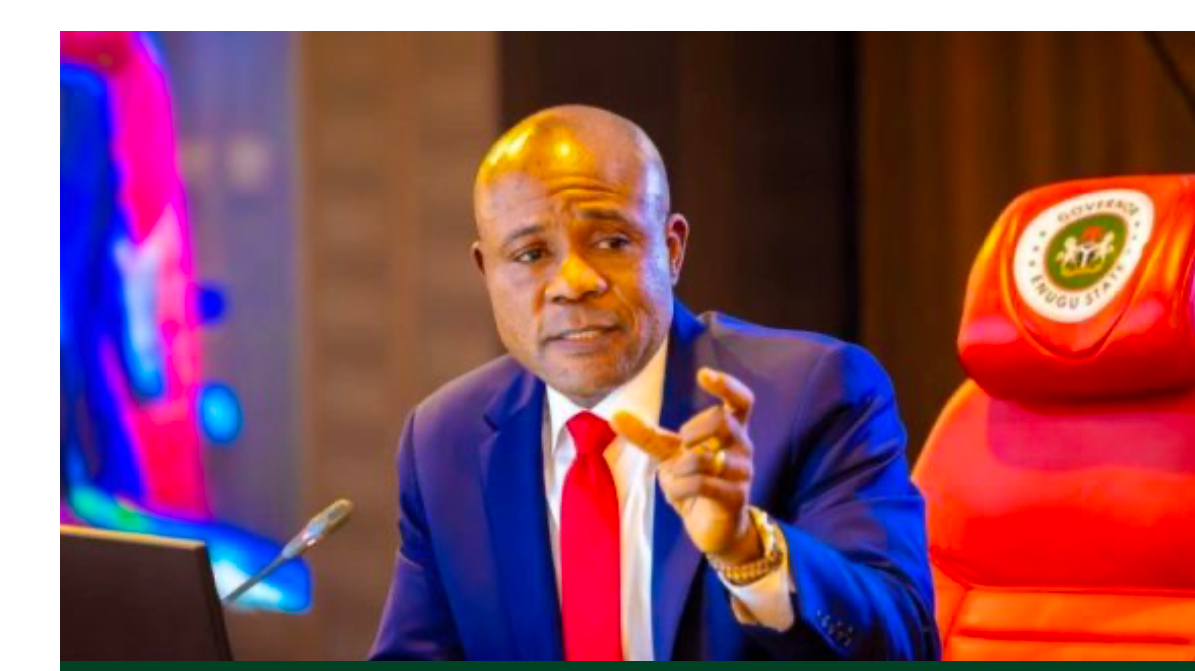
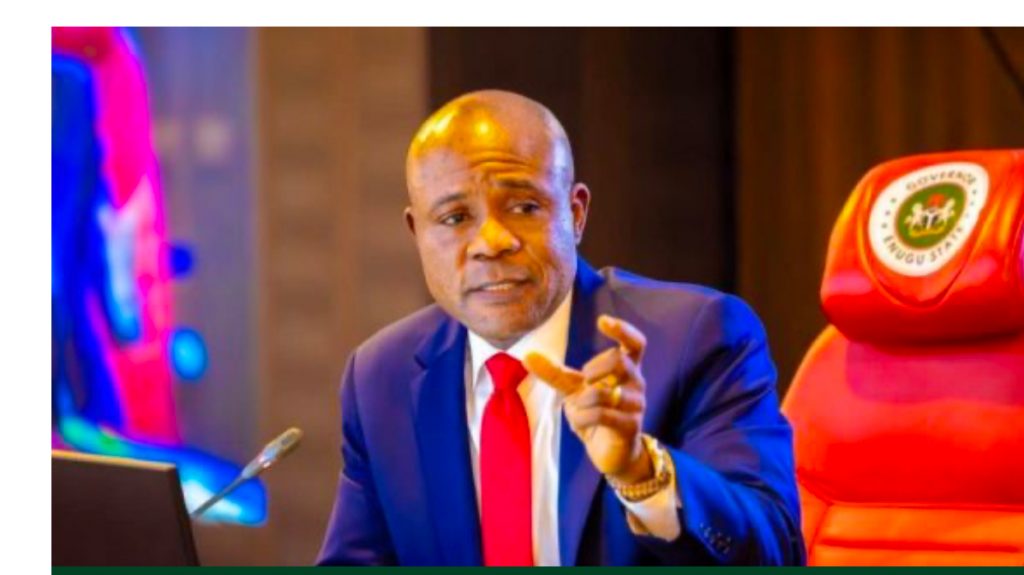 …..Gov, lawmakers, party executives exit party enmasse
…..Gov, lawmakers, party executives exit party enmasse
……Uncertainty over Suswam’s, ex-NAFDAC boss’ defection in Benue
…….PDP kicks, says govs being intimidated, coerced to defect
……Put your house in order, we’re not architect of your woes – APC
In a manner reminiscent of the defections that occurred in Delta and Cross River states earlier in the year, Governor Peter Mbah and all elected and appointive officers of the state are set to formally defect from the PDP to the All Progressives Congress (APC) on Tuesday next week.
The newly inaugurated Enugu State APC Caretaker Committee Chairman, Dr. Ben Nwoye, confirmed the development to newsmen at the APC National Secretariat in Abuja after taking the oath of office yesterday.
He made the disclosure during a press briefing by the newly inaugurated Enugu State Caretaker Committee.
Describing Mbah’s defection as the dawn of a new political era for Enugu and the Southeast region, Nwoye said the governor’s coming into APC would be “a merger between transformation and renewed hope.”
“For the past 10 years, Enugu State has remained in opposition. But all that ends on Tuesday when Governor Peter Mbah declares for the APC. And he is not coming alone,” Nwoye said.
According to him, the defection will signal a “historic alignment” as Mbah will be joined by 260 councillors, 24 state lawmakers, National Assembly members, and the entire state executive council—an unprecedented political realignment with President Bola Ahmed Tinubu’s Renewed Hope Agenda.
“Where Enugu goes, the Southeast goes. This marks the beginning of the Southeast’s political reawakening and full integration into national politics,” Nwoye said with a tone of confidence.
Commending the Governor Mbah’s performance in his last two years in office, Nwoye, who was the founding state chairman of the party, noted that his economic and infrastructural reforms had elevated the state to one of Nigeria’s top-performing states in internally generated revenue.
He added that the synergy between Mbah’s Transformation Agenda and President Tinubu’s Renewed Hope Vision would accelerate development and economic growth across the Southeast.
APC National Chairman, Prof. Nentawe Yilwatda, who inaugurated the seven-man caretaker committee for the party in the state, had earlier hinted of moves by the APC to strengthen its foothold in the Southeast.
The APC chairman charged the new Enugu leadership to consolidate the shock defection into a “lasting political conquest”
“APC is home for all. The person who came yesterday, today or tomorrow has equal rights.
Nigerian government services
Private refinery investment Nigeria
Digital trade agenda investment
“Our goal is simple: to expand, to win, and to deliver overwhelming victory in 2027,” Yilwatda said.
APC’s Deputy National Chairman (South), Emma Eneukwu, who is from the state, said the political development in the state marked the return of the Southeast region to national relevance.
“We will no longer play second fiddle. With Enugu in APC, the Southeast has found its voice again,” he declared.
Uncertainty over Suswam’s, ex-NAFDAC boss’ defection in Benue
There were strong rumours yesterday that Suswam, Orhii who currently serves as a member of the House of Representatives representing Agatu/Apa Federal constituency, Hon. Ojema Ojotu and former Benue North East Senator, Prof. David Iornem were set to join the APC in Benue State.
This was in spite of a statement issued by the media aide to Suswam dispelling the rumour that his boss had defected from PDP to the ruling party.
Banners and signposts announcing their official defection and pre-decamping dinner adorned major roads and streets in Makurdi, the state capital, yesterday.
It is the first time Suswam would defect to another party since joining politics in 1999.
The black cat, as the former governor is widely known first won an election to represent Katsina Ala, Logo and Ukum Federal Constituency in the House Representatives on the platform of the PDP.
After eight years in the House of Representatives, he was elected the governor of Benue State for another eight years also on the platform of PDP.
His first bid to go to the Senate, however, ended in a fiasco as he lost the election. He, however, made a second bid and won election into the Senate.
He had remained in PDP even after losing his re-election bid until yesterday when the news of his defection broke.
There was jubilation from Suswam’s massive camp of supporters yesterday on hearing that the former governor had defected to APC.
In Anyiin his country home and Ayilamo settlement, there was dancing and singing throughout the day, with shouts Dom Agya as Suswam is known in his ancestry home.
At press time yesterday, he was locked in a meeting with his supporters.
Our correspondence learnt that the meeting was meant to deliberate on the date for the defection ceremony.
But the media aide to Senator Suwswam, Bede Bartholomew, yesterday denied the claims that his boss had defected to APC.
Bartholomew however admitted that Governor Hyacinth Alia two days ago extended an invitation to Suwswam and other leaders for a banquet with him at Government House Makurdi.
A press statement he signed and made available to our correspondent yesterday reads: “Moments ago, I received telephone calls from well-meaning Benuelites and leaders alerting me to trending news on Benue’s social media space purporting that the former governor of Benue State, His Excellency Senator Gabriel Torwua Suswam, is set to defect to the All Progressives Congress (APC) today and would be received by the Governor of Benue State, His Excellency Governor Hyacinth Alia, this evening at the Banquet Hall of the Benue State Government House.
“I debunk this unholy rumour with all vehemence as it doesn’t represent the current interests of Senator Gabriel Suswam or that of his supporters across the state and should be treated as a mere rumour and that’s all.
“What I know is that two days ago, the Governor of Benue State HE. Rev. Fr. Hyacinth Alia respectfully extended an invitation to Sen. Suswam, among other stakeholders, expressing his desire to attend a State Banquet slated for 10th October, 2025.
“It should be noted that as a former Governor of the State, Suswam is a stakeholder in the Benue project, thus his reason for accepting the invitation.
“There was no indication in the invitation letter that it was a political event or a decamping ceremony whatsoever.
“The former governor advises his supporters and well-wishers to disregard this rumour as it is baseless, aimless, and a lie from the deepest pit of hell.
“Suswam appreciates everyone who called in for further enquiries and concerns and wishes everyone a happy weekend ahead.
Defections: Blame no one for your woes, says APC as PDP kicks
The ruling All Progressives Congress (APC) yesterday took a swipe at the Peoples Democratic Party (PDP), accusing the opposition party of being responsible for its woes as more of its members are dumping it for the governing party.
This came on the heels of plans by the PDP governor of Enugu State, Peter Mbah, and the entire elective and appointive officers of the state to defect to APC on Tuesday.
The PDP had on Thursday blamed the wave of defections from the party on APC, accusing the ruling party of engaging in intimidation and coercion of its elected members.
National Publicity Secretary of the party, Debo Ologunagba, while reacting to reports of the planned defection of some governors elected on the platform of the party to the APC, accused the ruling party for its misfortune.
“The APC is orchestrating all of this through intimidation, through coercion, through blackmail,” he said.
But APC National Publicity Secretary, Felix Morka, waved off the PDP allegation, insisting that the opposition party was only crying over a self-inflicted problem.
Dismissing the PDP allegation, Morka said: “The PDP continues to ridicule itself by the boring, repetitive and baseless claim that APC is, somehow, intimidating or cajoling its governors and other senior members to dump their wreck of a party.
“The PDP is the sole maker of its own political predicament. The party is only harvesting well-deserved adversity from decades of political recklessness, mindless corruption, ruthless desecration of democracy, disgraceful failure of leadership, and destructive impunity that characterised its existence.”
Justifying the defection to APC, Morka argued that “the governors and members that are dumping the party in their numbers are doing so in exercise of their free democratic will, and wisely so, to mitigate against the devastating fate that Nigerians will deal the party in the upcoming 2027 elections.”
news
Update : Police Arrest Armed Robbers Allegedly Involved in Death of Arise TV Anchor, Somtochukwu

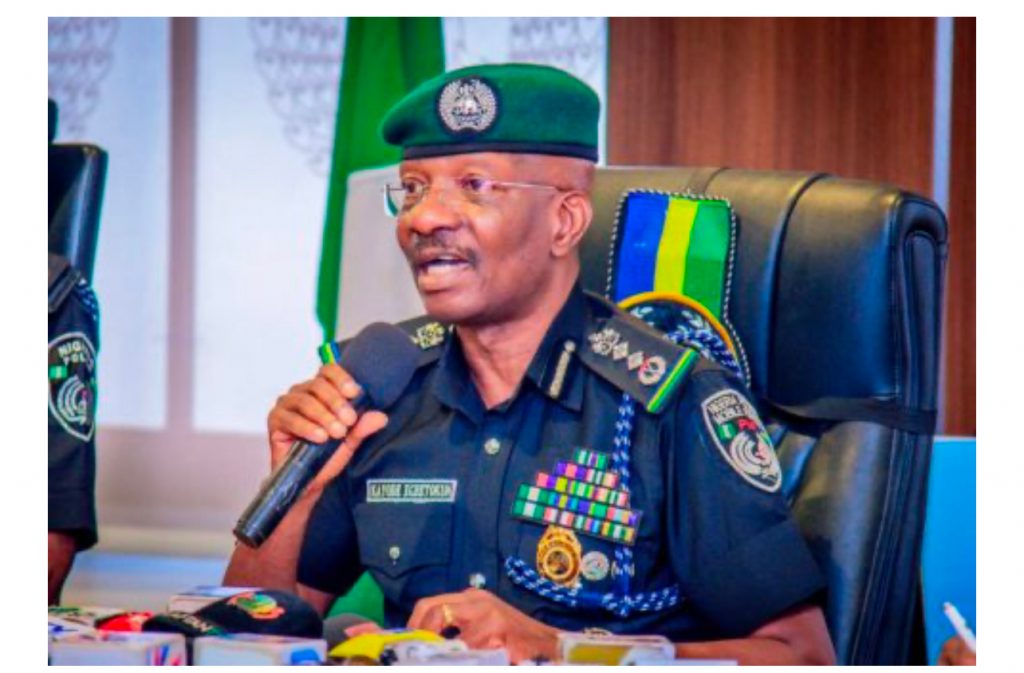 Police arrest armed robbers involved the killing of Somtochukwu Maduagwu
Police arrest armed robbers involved the killing of Somtochukwu Maduagwu
There are indications that 12 of the armed robbers involved the operation leading to the death of Arise News anchor, Somtochukwu Maduagwu have been arrested.
Somtochukwu Maduagwu, an anchor at Arise TV News panicked and jumped to her death after heavily armed robbers besieged her Katampe Extension home in Abuja.
It was reported that the robbers numbering about 15, well-armed, upon arriving the 18 blocks apartment estate, split themselves into groups and began robbing from flat to flat when 29 year old Sommie panicked and jumped down from her balcony to escape them before they arrived at her flat.
Our correspondence reports that attempts were made on the spot to revive her by a neighbor who gave her CPR before she was thereafter, rushed to the Maitama General Hospital where after trying to breathe life into her to no avail, the Doctors on duty declared her dead- on-arrival.
However, in a recent development, a Police EIB report released moments ago, indicates that 12 of the 15-armed robbery gang have been arrested by the Police in the Federal Capital Territory (FCT) Police.
Below is the EIB report released on Thursday…
Armed Robbers Involved In The Robbery That Led To The Death of Arise News Staff, Somtochukwu Maduagwu Arrested
According to the Police, the suspects are:
1. Shamsudeen Hassan ‘m’ from Malumfashi LGA Katsina state
2. Hassan Isah ‘m’, 22 years from Zaria kaduna State
3. Abubakar Alkamu a.k.a. abba ‘m’, 27 years from Musawa LGA katsina state
4. Sani Sirajo a.k.a. dan borume ‘m’ 20 years from Malumfashi LGA katsina state
5. Mashkur Jamilu a.k.a. abba ‘m’ 28 years from Igabi LGA kaduna state
6. Suleiman Badamasi a.k.a. dan-sule ‘m’ 21 years from Malumfashi LGA katsina state
7. Abdul Salam saleh a.k.a. na-durudu ‘m’ from katsina lga katsina State
8. Zaharadeen Muhammad a.k.a. gwaska ‘m’ 23 years from chikun lga kaduna state
9. Musa adamu a.k.a. musa hassan ‘m’ 30 years from malumfashi lga katsina state
10. Sumayya Mohammed a.k.a. baby ‘m’ 27 years from Sammaka LGA, Kaduna state
11. Isah Abdulrahman a.k.a. abbati ‘m’, 25 years from Zaria LGA, Kaduna state
12. Musa Umar a.k.a. small ‘m’ 31 years from Maiduguri LGA Borno state.
Shortly after the robbery incident, four (4) of the suspects shamsudeen hassan, alkamu, sirajo and one other person were apprehended through the tracking of phones stollen from the apartment during the robbery.
During interrogation, Shamsudeen Hassan confessed that he shot the security guard when he attempted to prevent them from gaining access to the apartment. Sani Sirajo confessed to have tried to hold Somtochukwu Christella Maduagwu from falling off the three-storey building but was overwhelmed by her weight. Shamsudeen further confessed that he drove the white honda CR-V jeep out of the apartment after the operation. The four suspects admitted that they each received ₦200,000 from the proceeds of the crime.
Recovered exhibits include:
One (1) fabricated ak-47 rifle
Thirty-six (36) rounds of 9mm live ammunition
One (1) locally made pistol
One (1) pump-action gun
Two (2) live cartridges
Four (4) mobile phones of the victims
Two (2) sharp knives
One (1) cutlass
Nine (9) torchlights used during the operation
In continuation of investigations, yesterday, 08/10/2025, acting on a tip-off and actionable digital intelligence also provided by us, the remaining members of the gang, Musa umar a.k.a. small, Hassan Isah and other accomplices involved in the Gishiri robbery were intercepted while enroute to an already planned armed robbery operation scheduled to hold at maitama in the early hours of this morning.
All suspects have confessed to the crimes, investigation is ongoing.
-

 news5 years ago
news5 years agoUPDATE: #ENDSARS: CCTV footage of Lekki shootings intact – Says Sanwo – Olu
-

 lifestyle5 years ago
lifestyle5 years agoFormer Miss World: Mixed reactions trail Agbani Darego’s looks
-

 health5 years ago
health5 years agoChairman Agege LG, Ganiyu Egunjobi Receives Covid-19 Vaccines
-

 lifestyle4 years ago
lifestyle4 years agoObateru: Celebrating a Quintessential PR Man at 60
-

 health5 years ago
health5 years agoUPDATE : Nigeria Records 790 new cases of COVID-19
-

 health5 years ago
health5 years agoBREAKING: Nigeria confirms 663 new cases of COVID-19
-

 entertainment9 months ago
entertainment9 months agoAshny Set for Valentine Special and new Album ‘ Femme Fatale’
-

 news5 months ago
news5 months agoBREAKING: Tinubu swears in new NNPCL Board


